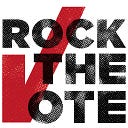What is the Election Assistance Commission? An Explainer
by Kosoko Jackson & Melissa Wyatt
Regardless of political affiliation, we all want fair and accessible elections.
So what does it mean that the House Administration Committee just approved a bill to terminate the Election Assistance Commission (EAC)? What role does the EAC play in our election security? These are important questions, so let’s break it down.
What is the Election Assistance Commission (EAC)?
As part of the Help America Vote Act in 2002, the Bush Administration created the EAC, an independent and bipartisan federal commission, comprised of both Democrats and Republicans, who are appointed by the president and confirmed by the Senate.
Many state chief election officials are elected, and state election administrations can be partisan. The EAC ensures that our country’s election standards are outlined by both major political parties, and new voting systems, including the machines that we vote on, are approved and certified.
Why does it matter that it could be eliminated?
Currently, the EAC is responsible for:
- Certifying new voting systems and holding them to standards like:
- Verification by the voter that their vote is accurate, prior to it being cast
- Paper records of each vote so that it’s possible to use physical votes to verify the results in the event of a recount or an audit
Without the EAC, states can implement systems that don’t meet these standards.
- Ensuring that all eligible voters have access to the voting process, regardless of physical ability or language needs.
Without the EAC, these standards would no longer be required, making it more challenging for voters with disabilities and second-language English speakers to participate.
- Providing resources and best practices to state election officials about how to innovate and improve running elections.
Without the EAC, states looking to improve voter participation or election systems will not be provided with bipartisan best practices or information, delaying the improvement of our democracy.
What’s Next?
We need the EAC now more than ever. The majority of states are currently using outdated voting machines, originally purchased in 2002 under the Help America Vote Act, and many states and local jurisdictions are preparing to purchase and install new voting machines.
Without the EAC, these new machines will not be held to any federal standard of accessibility or security.
Elections are the cornerstone of our democracy, so ensuring that they are well-run is essential to maintaining confidence in our electoral process. The elimination of the EAC is not a partisan issue — it is an American issue. And we should all be paying attention when pro-voting institutions like the EAC are in danger.
